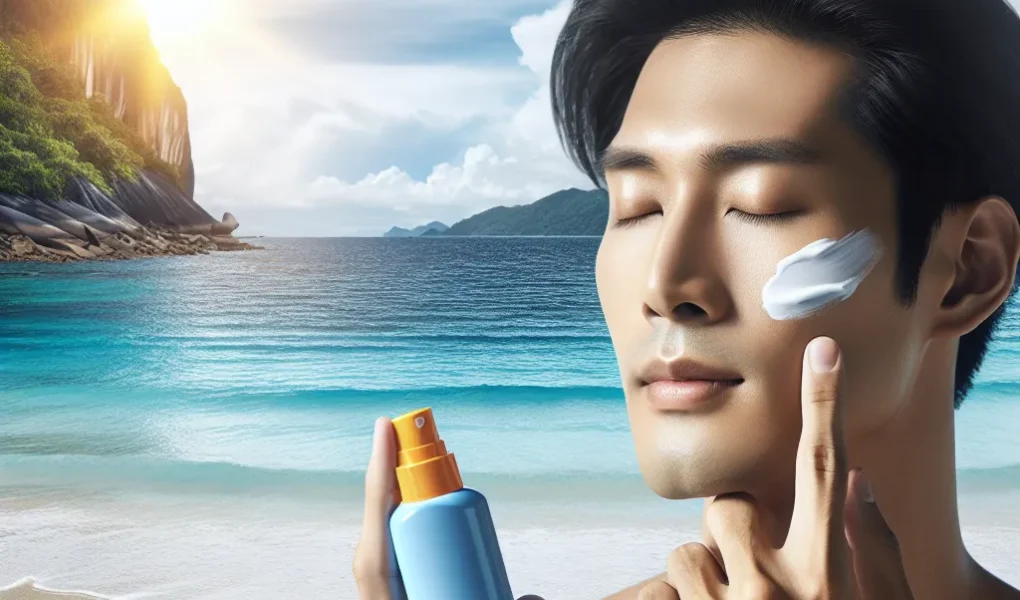The Science Behind Sunscreen: UV Protection and Skin Health
Understanding the importance of sunscreen in skincare is crucial for maintaining healthy and youthful skin. One of the fundamental aspects of sunscreen is its role in protecting the skin from the harmful effects of ultraviolet (UV) radiation. The science behind sunscreen revolves around its ability to provide UV protection and safeguard the skin’s health.
UV radiation is known to have detrimental effects on the skin, including premature aging, wrinkles, and an increased risk of skin cancer. Sunscreen works by containing active ingredients that act as filters to either absorb or reflect UV rays, preventing them from penetrating the skin. These active ingredients are classified as either chemical or physical blockers, each with its unique mechanism of action.
Chemical sunscreen ingredients, such as avobenzone and octocrylene, absorb UV radiation and transform it into harmless heat, while physical blockers like titanium dioxide and zinc oxide act as a physical barrier, reflecting UV rays away from the skin.
By understanding the science behind sunscreen and its UV protection capabilities, individuals can make informed decisions about selecting the most suitable sunscreen for their specific needs. Incorporating sunscreen into a daily skincare routine is essential for mitigating the adverse effects of UV radiation and maintaining skin health in the long term.
In conclusion, sunscreen plays a pivotal role in preserving skin health by providing crucial UV protection. Understanding the scientific principles behind sunscreen empowers individuals to prioritize skincare and make informed choices to safeguard their skin from the damaging effects of UV radiation.
Choosing the Right Sunscreen: Factors to Consider for Effective Protection
When it comes to skincare, choosing the right sunscreen is crucial for effective protection against the sun’s harmful rays. With a wide array of sunscreens available in the market, it’s important to consider several factors to ensure that you are providing your skin with the best possible protection.
Sun Protection Factor (SPF) is a key factor to consider when selecting a sunscreen. SPF indicates the level of protection the sunscreen provides against the sun’s ultraviolet B (UVB) rays. It is recommended to choose a sunscreen with an SPF of 30 or higher for adequate protection.
Another important factor to consider is the broad-spectrum coverage of the sunscreen. A broad-spectrum sunscreen protects the skin from both UVA and UVB rays, providing comprehensive protection against skin aging, sunburn, and skin cancer.
The water resistance of the sunscreen is also a crucial consideration, especially if you’ll be swimming or sweating. Water-resistant sunscreens provide longer-lasting protection, but it’s important to reapply them after swimming or sweating to maintain effectiveness.
For those with sensitive skin, it’s essential to choose a sunscreen that is labeled as “hypoallergenic” and “fragrance-free” to minimize the risk of irritation or allergic reactions.
Additionally, considering the formulation of the sunscreen is important. Creams are ideal for dry skin, while gels or sprays are suitable for oily skin. It’s essential to choose a sunscreen that suits your skin type to ensure comfort and maximum effectiveness.
In conclusion, choosing the right sunscreen involves considering factors such as SPF, broad-spectrum coverage, water resistance, skin sensitivity, and formulation. By taking these factors into account, you can ensure that you are providing your skin with effective protection against the sun’s harmful rays.
Sunscreen Application Tips for Maximum Skincare Benefits
Understanding the importance of sunscreen in skincare is essential for maintaining healthy and youthful skin. Sunscreen not only protects the skin from harmful UV rays but also plays a crucial role in preventing premature aging, sunspots, and skin cancer. To maximize the skincare benefits of sunscreen, it’s important to follow some key application tips.
First and foremost, it’s crucial to choose a broad-spectrum sunscreen with a high SPF (Sun Protection Factor) to ensure protection against both UVA and UVB rays. Apply sunscreen generously to all exposed skin areas, including the face, neck, ears, and hands. Don’t forget often overlooked areas such as the tops of your feet and the back of your neck.
It’s recommended to apply sunscreen at least 15 minutes before sun exposure to allow the product to fully bind to the skin. Reapply sunscreen every two hours, or more frequently if swimming or sweating, to maintain its effectiveness. Remember that using makeup or skincare products with SPF is not a substitute for a dedicated sunscreen. Layering sunscreen with other products can enhance protection, but it’s not a replacement for proper sunscreen application.
Another essential tip is to not skimp on the amount of sunscreen you use. Studies have shown that most people apply far less sunscreen than the amount needed for optimal protection. Using too little sunscreen drastically reduces its effectiveness. A good rule of thumb is to use a shot glass-sized amount for the entire body and a nickel-sized dollop for the face.
Lastly, don’t forget to apply sunscreen even on cloudy days, as UV rays can penetrate through cloud cover. Additionally, UV exposure occurs year-round, so wearing sunscreen every day, regardless of the weather, is crucial for maintaining healthy skin.
By following these sunscreen application tips, individuals can maximize the skincare benefits of sunscreen and protect their skin from the damaging effects of UV radiation.



